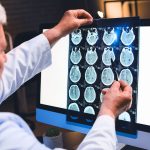Is it possible that the diseases that have plagued humanity for centuries—cancer and heart disease—could one day become preventable? It sounds like science fiction, but the future of medicine is edging closer to making this a reality. With groundbreaking research, personalized medicine, and lifestyle shifts, we’re entering an era where prevention could become the norm, …
Is it possible that the diseases that have plagued humanity for centuries—cancer and heart disease—could one day become preventable? It sounds like science fiction, but the future of medicine is edging closer to making this a reality. With groundbreaking research, personalized medicine, and lifestyle shifts, we’re entering an era where prevention could become the norm, not the exception.
A New Age of Precision Medicine
Gone are the days when healthcare was one-size-fits-all. In the future, medicine will revolve around you—your genes, your environment, your habits. This is where precision medicine comes into play. By mapping your DNA, doctors will be able to predict your risk for certain diseases, including cancer and heart disease, and recommend specific interventions tailored to your unique genetic makeup.
Imagine getting a personalized treatment plan that tells you exactly which lifestyle changes or medications will work best for your body—before the disease even has a chance to strike.
The Role of Lifestyle – Small Changes, Big Impact
We can’t talk about prevention without mentioning the powerful role of lifestyle choices. The future isn’t just about cutting-edge tech; it’s about understanding how what we do every day plays a significant role in disease prevention.
Let’s break it down into two parts:
Cancer prevention:
Avoiding known carcinogens like tobacco, reducing exposure to environmental toxins, and focusing on an antioxidant-rich diet are key factors. Studies have shown that certain foods, rich in phytochemicals, can fight off cancer-causing free radicals.
Heart disease prevention:
It’s no secret that heart disease is largely influenced by lifestyle—exercise, diet, and stress management. But in the future, we’ll have even better insight into exactly what works for each individual, thanks to advancements in health monitoring technologies.
Wearable Technology
Speaking of technology, wearable devices are getting more sophisticated by the minute. We already have smartwatches tracking our steps and heart rate, but the future promises so much more.
Imagine a device that not only tracks your health metrics but also predicts when you might be at risk for a heart attack or if cancer cells are starting to develop.
These wearable devices could be the frontline soldiers in disease prevention, catching warning signs early and giving you a chance to intervene before it’s too late.
Immunotherapy – The Future of Cancer Treatment?
One of the most exciting advances in cancer treatment is immunotherapy, a type of treatment that boosts the body’s natural defenses to fight cancer. The idea? Train the immune system to recognize and destroy cancer cells before they have a chance to grow into a serious problem.
But what if we could use the same technology to prevent cancer altogether?
Gene Editing – A Game-Changer for Disease Prevention
Enter CRISPR, the gene-editing technology that’s already making waves in medical research. In the future, CRISPR could allow doctors to edit faulty genes that make us more susceptible to cancer or heart disease. By eliminating genetic predispositions, we could prevent these diseases at their root.
While the technology is still in its early stages, it’s not hard to imagine a world where genetic editing becomes a standard tool in disease prevention, changing the way we think about health and longevity.
Conclusion
Can we really prevent cancer and heart disease? The answer is inching closer to yes, but it’s not going to be a magic pill or a miracle cure. It will come from a combination of personalized medicine, technology, and a commitment to living healthier, more intentional lives.
The future of medicine is bright, but it’s in our hands too. What choices will you make today for a healthier tomorrow?








